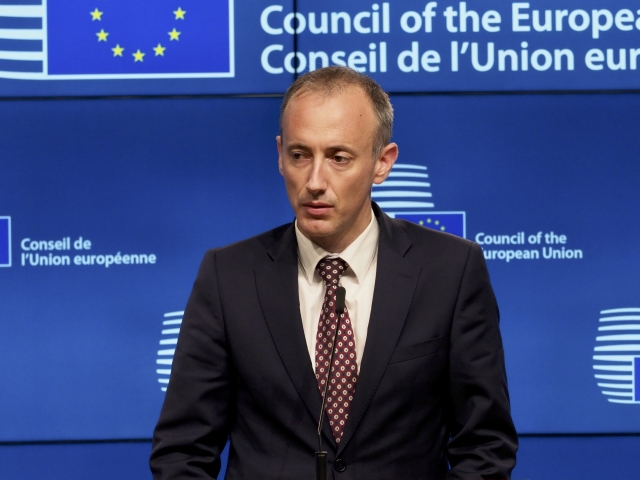
EOSC Roadmap Endorsed by European Commission
In a meeting in Brussels yesterday, 29 May, EU research ministers endorsed the roadmap for the creation of the European Open Science Cloud (EOSC) which was been the result of around two years of intense negotiations and consultations.
EOSC will support EU science in its global leading by creating a trusted environment for hosting and processing research data. The Conclusions of the Competitiveness Council was proposed by the current Bulgarian Presidency of the Council of the EU. Bulgarian Minister for Science and Education Krasimir Valchev (depicted above) was present.
Speaking on the occasion, EC Research, Science and Innovation Commissioner Carlos Moedas said:
The Cloud will be a game changer for science in Europe. These Conclusions show that we are delivering on our Open Science priority, bringing an idea to fruition in just two years. Such quick progress in such a short time would not be possible without the support of national governments, industry and the scientific community.
Commissioner Moedas added that there's still much work to be done to make the EOSC a reality by 2020. However there is already a general picture of what the EOSC would look like including the vision that:
- the Cloud should be a wide, pan-European federation of existing and emerging excellent infrastructures, which respects the governance and funding mechanisms of its components;
- membership in this federation would be voluntary; and
- the governance structure would include member state ministries, stakeholders and scientists.
He then called on ministers to redouble their commitment to the initiative and encourage key national scientific infrastructures to federate into the EOSC.
Next milestones for 2018
Earlier in March, the Commission presented its roadmap for the EOSC in its Implementation Roadmap for the European Open Science Cloud Staff Working Document.
Immediately after this, key scientific and policy stakeholders of the EOSC will gather in Brussels on 11 June to discuss the possible Rules of Participation in the EOSC and the drafting of pan-European principles for FAIR data (findable, accessible, interoperable and reusable). Preparatory work on both topics has been done by the High Level Expert Group on the EOSC and by the EOSCPilot project.
Up next will be the set-up of the governance structure and the launch of projects directly supporting EOSC's implementation under the INFRAEOSC Call of Horizon 2020, the EU research and innovation programme.
This year, on 23 November, the incoming Austrian Presidency of the Council plans to gather research and innovation ministers to launch the governance structure, which will steer and coordinate the work of several projects under Horizon 2020, and to launch the first version of the EOSC Portal.
